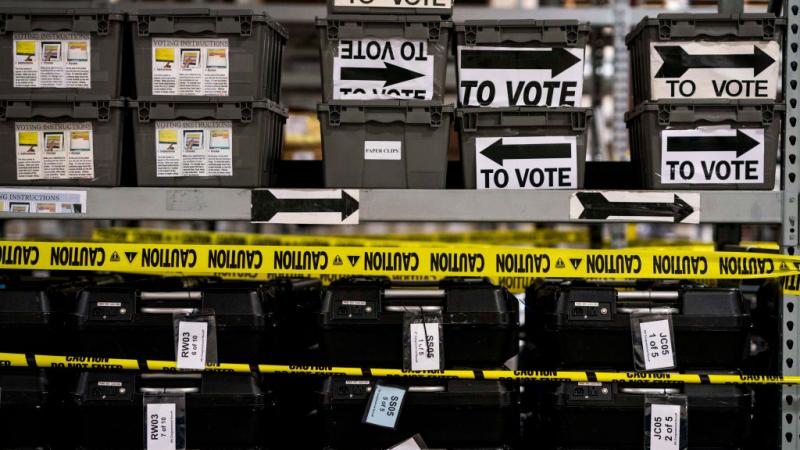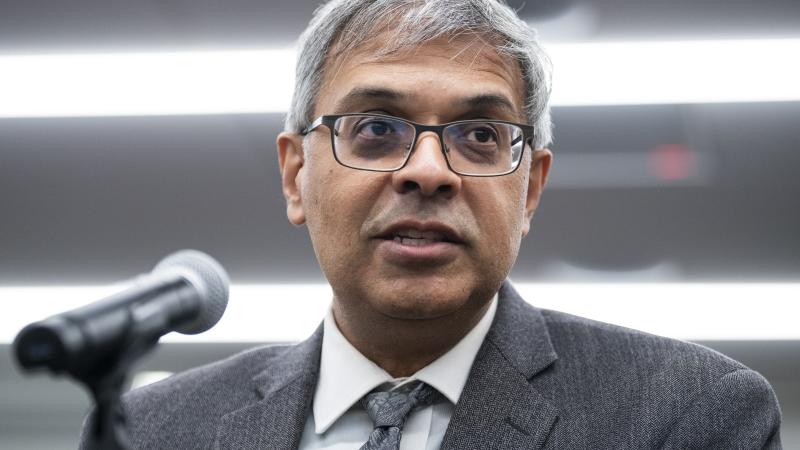Biden risks further alienating Cuban Americans by lifting sanctions against Cuban regime
On both sides of political aisle, Cuban Americans condemn administration's decision to remove Trump-era restrictions.
Cuban-American lawmakers and activists are blasting the Biden administration's decision to lift certain Trump-era sanctions against Cuba's communist government as unjustified and counterproductive.
The administration's announcement on Monday, which has drawn bipartisan backlash, risks further alienating a Cuban-American voting demographic that was already trending Republican.
In Florida, where most Cuban Americans live, 54% of Cuban Americans voted for Donald Trump in 2016, compared to 41% who voted for Hillary Clinton. Four years later, 58% of Cuban registered voters nationwide said they affiliated with or leaned toward the Republican Party, while 38% said the same of the Democratic Party, according to a Pew Research Center survey.
Meanwhile, polling from last year indicated that 62% of Cuban-American voters in Florida backed Trump in 2020 and that months later, they still had a more favorable opinion of Trump than President Biden.
One apparent reason for this shift toward the GOP is the transformation of U.S. policy toward Cuba under former President Barack Obama.
A strong majority of Cuban Americans in Florida oppose lifting the U.S. trade embargo on Cuba, easing travel restrictions to Cuba, and reverting to the Obama-era policy of engaging the island's communist dictatorship, according to a poll conducted by Bendixen & Amandi International.
Obama's opening to Cuba included the restoration of diplomatic relations. Donald Trump reversed many Obama-era policies, adopting a tougher posture toward the Cuban government, but President Biden campaigned on the promise of reversing Trump's restrictions.
State Department spokesman Ned Price described the new slate of changes, which followed a lengthy policy review, as designed "to further support the Cuban people, providing them additional tools to pursue a life free from Cuban government oppression and to seek greater economic opportunities."
However, prominent members of the Cuban-American community, including members of Congress from both parties, castigated the measures as undermining the fight for democracy and human rights.
The administration's announcement "risks sending the wrong message to the wrong people, at the wrong time and for all the wrong reasons," said Sen. Bob Menendez (D-N.J.), chairman of the Senate Foreign Relations Committee.
Menendez specifically called out the administration's decision to reverse Trump policies that made it more difficult to travel to Cuba.
"I am dismayed to learn the Biden administration will begin authorizing group travel to Cuba through visits akin to tourism," he said. "Those who still believe that increasing travel will breed democracy in Cuba are simply in a state of denial."
The administration is lifting a ban limiting commercial and charter U.S. flights to Havana, the Cuban capital, allowing flights to other Cuban cities. Visa processing at the embassy in Havana will also be increased, as will various consular services.
American tourism to Cuba remains prohibited, as does individual travel under many circumstances. However, the Biden administration will "make it easier for families to visit their relatives in Cuba and for authorized U.S. travelers to engage with the Cuban people, attend meetings, and conduct research," said Price.
Part of that effort will include reinstating and issuing a general license for group educational travel to the island.
Menendez argued easing travel restrictions to Cuba has only lined the Cuban regime's pockets, propping up its authoritarian rule. However, he praised the administration for not removing any sanctioned entities from the Cuba Restricted List and for restarting the Cuban Family Reunification Parole Program.
In addition to easing these restrictions, the Biden administration will lift a remittance cap of $1,000 per quarter and, according to the Miami Herald, allow for direct U.S. investments in private businesses in Cuba for the first time in more than six decades.
Besides Menendez, other Cuban Americans commented on the new measures.
Sen. Ted Cruz (R-Texas) described them as "catastrophic and unjustifiable concessions," while Sen. Marco Rubio (R-Fla.) said they were "the first steps back to the failed Obama policies on Cuba."
Rubio said that Monday's announcement was in part the result of Cuba threatening Biden with mass migration and pressuring the administration to make concessions. He wasn't the only one to make such a claim.
"The ineptitude of an administration that prefers the approval of the dictatorship and gives in to its migratory blackmail, even against the clamor of the people, is outrageous," tweeted Rosa Maria Paya Acevedo, a prominent Cuban-American activist, according to a translation of the original tweet in Spanish. "When repression is maximum and there are children imprisoned for shouting freedom in Cuba, [Biden] shouts remittances. It's a joke."
The administration's announcement came amid a sharp increase in illegal border crossings by Cubans and Nicaraguans in recent months.
Beyond Cuba, the Biden administration is also preparing to lift some sanctions on Venezuela, another far-left dictatorship in Latin America. The stated purpose of the move is to encourage peaceful negotiations between the regime of Venezuelan leader Nicolas Maduro and the opposition, according to reports.
As with Biden's decision on Cuba, Menendez similarly slammed the administration's policy change toward Venezuela.
"Giving Maduro a handful of undeserved handouts just so his regime will promise to sit down at a negotiating table is a strategy destined to fail," Menendez said in a statement. "The United States should only consider recalibrating sanctions in response to concrete steps in negotiations, not simply in response to cheap talk from a criminal dictator. The onus for action is on Maduro ... We have placed the effectiveness of our sanctions on the line without clearly defining the parameters of what we expect in a final agreement."
Biden's approval rating among Hispanics has plummeted below 30%, according to recent polling, which shows the historically Democratic voting bloc's support for Republicans continues to increase.














